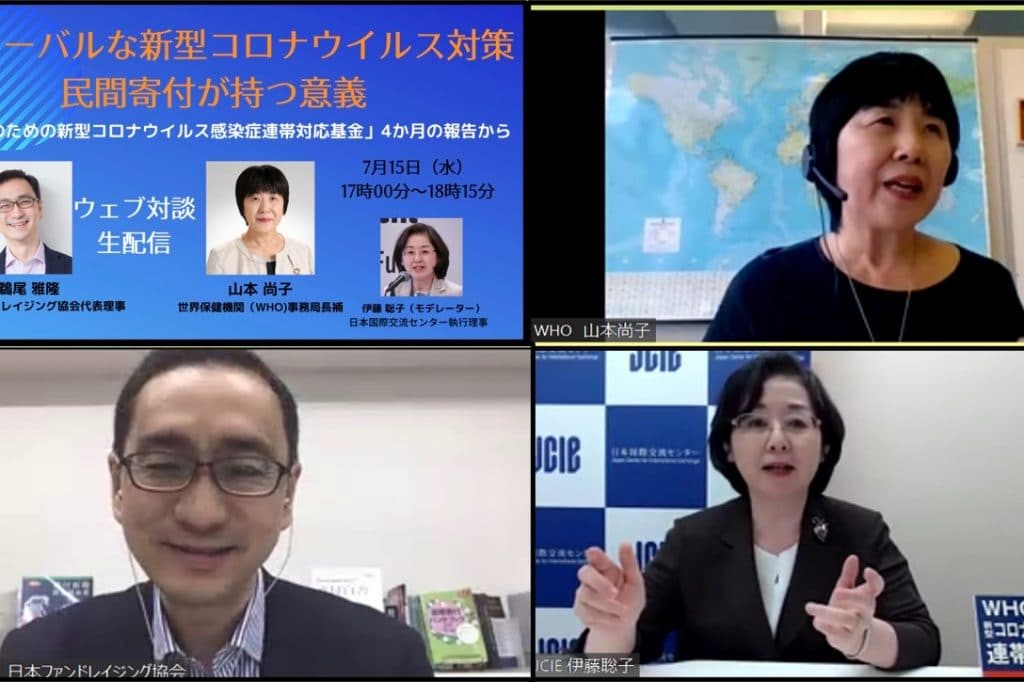Four months since the establishment of the COVID-19 Solidarity Response Fund for WHO (COVID-19 Fund), JCIE, the Japan partner of the COVID-19 Fund, held a virtual meeting to deepen the understanding of the World Health Organization’s critical role in the global response and discuss how a mass of private donors like the COVID-19 Fund can contribute to accelerating the response efforts. The discussion featured Naoko Yamamoto, assistant director-general of UHC and health systems at the World Health Organization (WHO), and Masataka Uo, CEO of the Japan Fundraising Association, with JCIE’s Satoko Itoh as a moderator.
As of July 4, 2020, the COVID-19 Fund has received over US$224 million in global contributions, with about US$10 million of these contributions coming from Japan. During the webinar, it was noted that the COVID-19 Fund is the largest source of funding to support the WHO’s pandemic countermeasures, having a scale and presence comparable to that of a major donor country. Looking at the number of donations per country, companies, and individuals from the United States make-up 70% of the total donations. This is an interesting phenomenon as it stands in contrast to the opposing will of the current US administration, which recently announced the withdrawal of its support for the WHO. With this in mind, and with over 100 registered participants from the private sector, government, and media listening in, the speakers discussed the role played by the WHO, the strength of private funds compared to public funds, and the significance of donations in the battle against COVID-19.
DISCUSSION POINTS
Naoko Yamamoto illustrated how the WHO is utilizing donations from the COVID-19 Fund in its pandemic response while clarifying the impact of this major private donor in the current international crisis. She pointed out the WHO’s responsibility to remain neutral as a norm-setting agency in global health, but also mentioned that in order to fill in the gaps and help those in need, there is a necessity to work together with various donors.
Words from Dr. Yamamoto on the beneficial aspects of the COVID-19 Fund (for the WHO):
“The WHO has been able to deploy funds from the COVID-19 Solidarity Response Fund with a speed and flexibility that has not been possible with conventional contributions. Donations through this private fund have made the COVID-19 responses of health sectors around the world much more powerful.”
“This year can be called the ‘inaugural year for global solidarity.’ As a public institution, the WHO has limitations on how it can respond in a crisis, but as a private, philanthropic fund, the COVID-19 Solidarity Response Fund, has allowed us to break through these walls in order to save lives and protect peoples’ health.”
Masataka Uo provided an in-depth look into Japan’s donation culture, noting the exponential growth in donations and volunteering that has occurred with every major natural disaster in the last few decades. Mr. Uo also explained the current trends with donating in Japan during the COVID-19 era, highlighting the shift in donations that have been directed to the global response as a rather new and exciting thing to observe.
Reflections from Mr. Uo on how COVID-19 could change the future outlook on donations in Japan:
“There is a saying that ‘a donation is a vote’…It is so encouraging that there is so much support in Japan for the COVID-19 Solidarity Response Fund.”
To read the full report from this webinar in Japanese, please the Japanese-language COVID-19 Solidarity Response Fund webpage.
PARTICIPANTS
Speakers
NAOKO YAMAMOTO, Assistant Director-General, UHC and Health Systems, World Health Organization (WHO)
MASATAKA UO, CEO, Japan Fundraising Association
Moderator
SATOKO ITOH, Managing Director and Chief Program Officer, Japan Center for International Exchange (JCIE)
To learn more about JCIE’s involvement in the COVID-19 Solidarity Response Fund for WHO, please visit the COVID-19 Fund’s program page.



